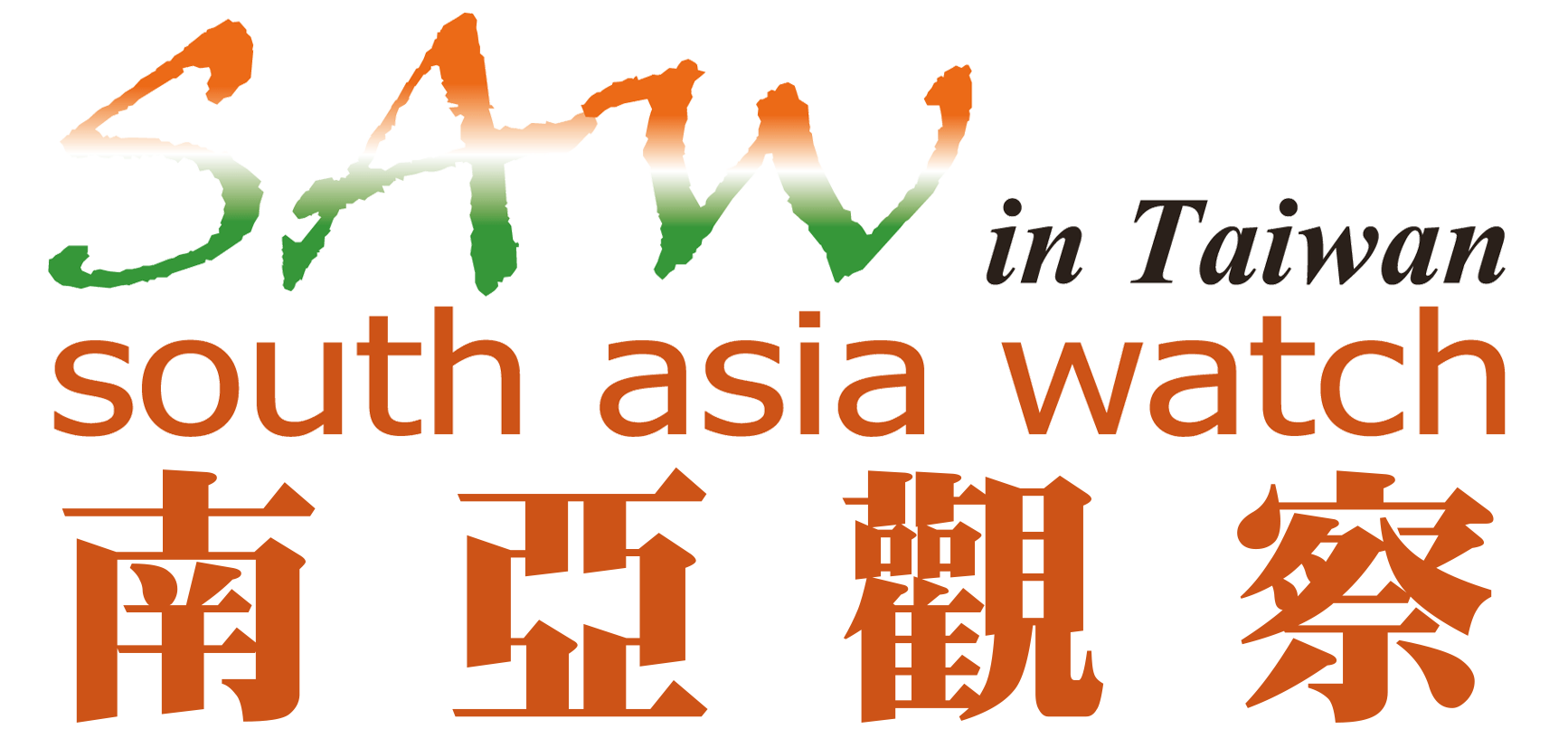Emesha Piumini Perera & 陳牧民
自從2009年內戰結束以來,斯里蘭卡一直朝著成為南亞地區知識樞紐的目標在努力。本文旨在介紹斯國有名的智庫及研究機構,包括在2012年美國出版的一份報告中被列入亞洲前四十大智庫,排名分別為第24名、28名與第37名的政策研究中心(IPS)、區域戰略研究中心(RCSS)與貧困分析中心(CEPA),以及其它著名智庫:卡迪加馬國際關係與戰略研究中心、國際族群問題研究中心、另類政策方案中心、社會科學家協會、維泰研究所、馬爾加研究所。文後亦指出部分智庫目前面臨財務困境、獨立性不足、過於偏重純學術研究等問題。
Think Tanks in Sri Lanka: An Introduction
Emesha Piumini Perera, University of Colombo, Sri Lanka
艾美莎 斯里蘭卡可倫坡大學經濟系學士
&
Mumin Chen, CSSAME, NCHU, Taiwan
陳牧民 台灣中興大學當代南亞與中東研究中心主任
簡介
自從2009年內戰結束以來,斯里蘭卡一直以成為「南亞地區的知識樞紐」(knowledge hub)為努力目標。前總統馬欣達.拉賈帕克薩當年提出的競選宣言如此宣示:「我們有機會讓這個國家成為整個南亞的知識樞紐,我將進行一個行動計畫,讓這個國家成為一個本國與國際的知識訓練中心」。為了達到此一目標,國家必須有足夠的能力吸引外資、 吸引本地高校畢業生留下來發展,並透過提供高質量的教育與訓練來創造以知識為基礎的經濟。然而,斯里蘭卡僅有少數獨立的智庫能夠一方面維持高水準學術研究,同時對政府政策制定過程中產生積極的貢獻。雖然內戰結束已經將近六年,斯里蘭卡依然面臨一系列的社會、經濟、政治問題,無論是政策制定還是成效評估,政府都仰賴專家學者的知識與建議,這也是智庫存在的理由。
這篇文章將介紹目前在斯里蘭卡有名的智庫及研究機構。在2012年美國所出版的一份報告中,將政策研究中心(IPS)、區域戰略研究中心(RCSS)、貧困分析中心(CEPA)列為斯里蘭卡表現最好的三個智庫。其中IPS在亞洲前四十大智庫中排名第24,RCSS與CEPA則分別為第28名及第37名。本文其餘部分將介紹斯里蘭卡其他著名的智庫,包括: 卡迪加馬國際關係與戰略研究中心、國際族群問題研究中心、另類政策方案中心、社會科學家協會、維泰研究所、馬爾加研究所。結論部分談到部分斯里蘭卡智庫目前所面臨的問題,包括財務困境、獨立性不足、過於偏重純學術研究等等。
Introduction
Sri Lanka has been on the mission path of “being a knowledge hub in South Asia” since 2009. In his Election Manifesto presented in 2009, Former President Mahinda Rajapaksa states “We have the opportunity to make this country a knowledge hub within the South Asia region. I will develop and implement an operational plan to make this country a local and international training centre for knowledge”.[1] For being a knowledge hub, a country should intend to attract foreign investment, retain local students, build a regional reputation by providing access to high-quality education and training for both international and domestic students, and create a knowledge-based economy. Nevertheless, Sri Lanka has a very few independent think tanks that are actively contributing to policy-making process while adding high-quality researches for the existing stock of knowledge. Although it has been almost 6 years since civil war ended, Sri Lanka still faced a series of socio, economic and political problems, and the government shall rely on experts’ knowledge and suggestions for policy formations and assessments. This article intends to introduce some of the popular think tanks and research-based institutions in Sri Lanka,
In 2012, Global Go-To Think Tanks Report and Policy Advice Report identified Institute of Policy Studies (IPS), Regional Centre for Strategic Studies (RCSS), and the Centre for Poverty Analysis (CEPA) as top three think tanks in Sri Lanka. Sri Lanka’s IPS is at 24th position among the top forty think tanks in Asia while RCSS and CEPA obtained 28th and 37th places respectively. [2]
Institute of Policy Studies (IPS) 政策研究所
In the mission statement, IPS claims “to contribute to the economic development of a democratic Sri Lanka and enhance the quality of life of its people by informing policy-makers and contributing to the public debate through timely, independent, and high quality research-based analysis of medium and long-term national policy issues.” IPS as think tank has acquired a unique position as an authoritative independent voice in economic policy analysis, working closely with the government, private sector, academia, and civil society. It was established in mid – 1980s by an act of parliament (No 53 of 1988), set up as a legal entity by gazette notification in April 1990 and managed by a Board of Governors and the Executive Director. Eleven senior researches and nine junior researches are contributing their service in the IPS. Because of its affiliation to government, it is probably the most well-known and established think tank in Sri Lanka in economic areas. IPS researches mainly concern on medium-term research areas such as policy efficiency and competitiveness, migration and development, human resources for sustained development, private sector development, poverty and vulnerability, Environment, Natural resources and Agriculture.
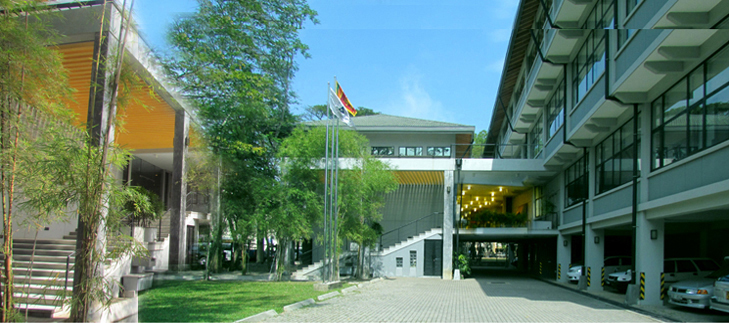 IPS is considered as operationally independent and autonomous body in its researches because of its separation from the government
IPS is considered as operationally independent and autonomous body in its researches because of its separation from the government
in both financial and administrative terms. Among its various publications, State of the Economy report is the flagship annual publication that analyses Sri Lanka’s economic performance and explores emerging development challenges for the country. Since 2000, It has jointly managed with the Research andInformation System for Non-aligned and Other Developing Countries (RIS) of India to publish a periodical named South Asia Economic Journal in 2000. IPS also provides editorial support for the Sri Lanka Economic Journal, a biannual publication of the Sri Lanka Economic Association.
IPS Website: http://www.ips.lk
Regional Centre for Strategic Studies (RCSS) 區域戰略研究中心
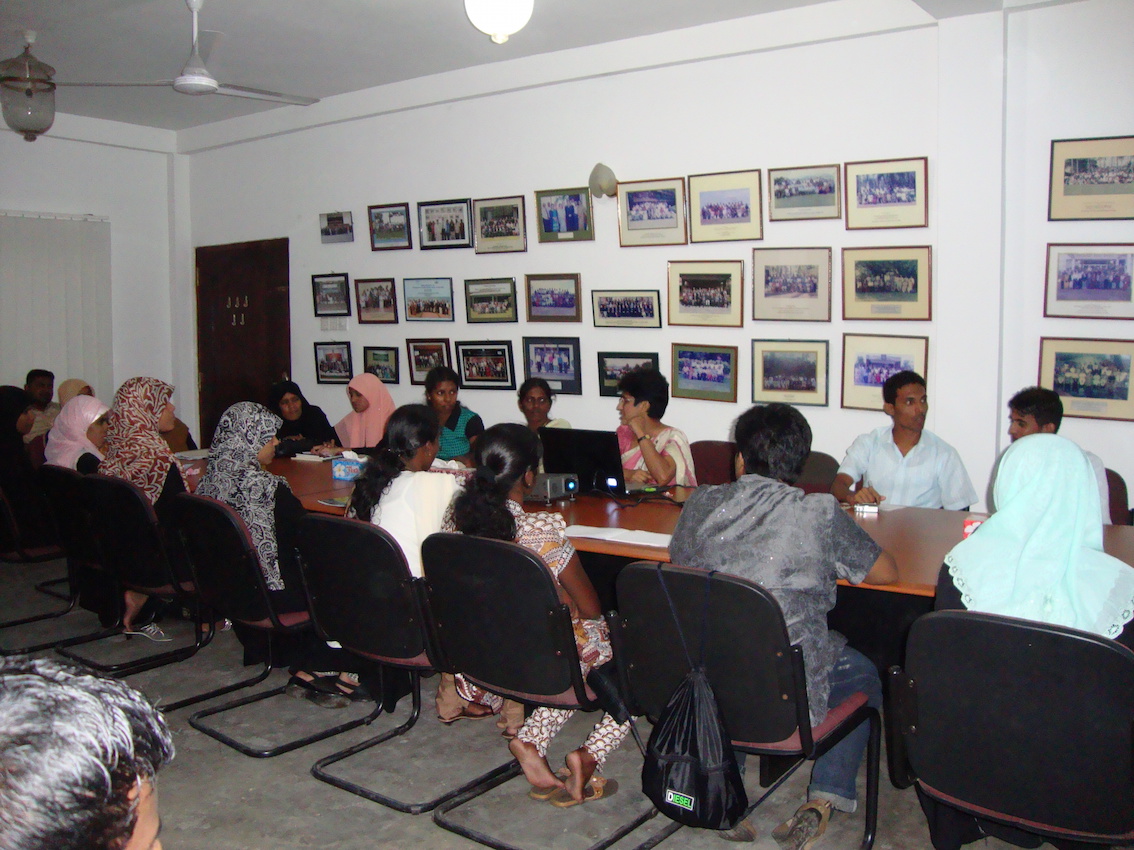 Established in 1993, RCSS is
Established in 1993, RCSS is
a non-governmental and non-profit South Asian regional think tank and is based in Colombo. It is also an independent organization engaged in research and interaction on strategic and international issues pertaining to South Asia based on mainly political perspective. And also its key objectives concentrate around enhancing regional cooperation in strategic and security matters. It encourages research and dialogue on a wide range of sources of conflicts in South Asian region and RCSS facilitates scholars and professionals in the region to address, mutually and collectively, problems and issues of topical interest mainly on the areas. RCSS is probably the most famous non-government think tank committed to strategic and security studies in Sri Lanka today. Its researches and projects are supervised by a nine-member International Research Committee, drawn from all South Asian countries, and its administrative financial matters are overseen by a seven-member board of directors.
RCSS website: http://rcss.org/index.php
Centre for Poverty Analysis (CEPA) 貧困分析中心
CEPA concentrates on poverty-related development issues in Sri Lanka while giving special emphasis on applied policy relevant advice. It was incorporated as a non-profit company under Section 21 of the Companies Act in May, 2001, facilitated by the Poverty Impact Monitoring Unit (PIMU) which was supported by the German Agency for Technical Cooperation (GTZ) at its establishment. Its mission is “to be a leading organization providing independent analysis of poverty, with a view to shaping policy that affects the lives and livelihoods of vulnerable women, men and children in Sri Lanka and the region.”
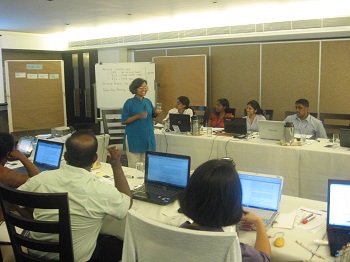 CEPA implements three main programs, namely Poverty Assessment and Measurement Program, Poverty Impact Monitoring Program, and Communications and Policy Program. In the past decade CEPA has succeeded in developing a body of knowledge on poverty and has developed fresh and challenging perspectives on poverty; explored alternative dimensions; conducted in-depth analyses of specific poverty conditions; contributed to a better understanding of poverty in Sri Lanka and formulated policy initiatives to alleviate the multi-dimensional facets of poverty. Its recently studies also include environment, infrastructure migration, post- conflict development and vulnerability. The staff of CEPA includes of six senior researchers, two research professionals and three junior researchers.
CEPA implements three main programs, namely Poverty Assessment and Measurement Program, Poverty Impact Monitoring Program, and Communications and Policy Program. In the past decade CEPA has succeeded in developing a body of knowledge on poverty and has developed fresh and challenging perspectives on poverty; explored alternative dimensions; conducted in-depth analyses of specific poverty conditions; contributed to a better understanding of poverty in Sri Lanka and formulated policy initiatives to alleviate the multi-dimensional facets of poverty. Its recently studies also include environment, infrastructure migration, post- conflict development and vulnerability. The staff of CEPA includes of six senior researchers, two research professionals and three junior researchers.
CEPA website: http://www.cepa.lk
Apart from above three think tanks there are some other popular governmental and non-governmental institutes in Sri Lanka committed to policy researches, such as Lakshman Kadirgamar Institute of International Relations and Strategic Studies, International Centre for Ethnic Studies (ICES), Centre for Policy Alternatives (CPA), Social Scientists Association (SSA), Verité Research, and Marga Institute. The rest of this paper provides a general introduction of them.
Lakshman Kadirgamar Institute of International Relations and Strategic Studies
卡迪加馬國際關係與戰略研究中心
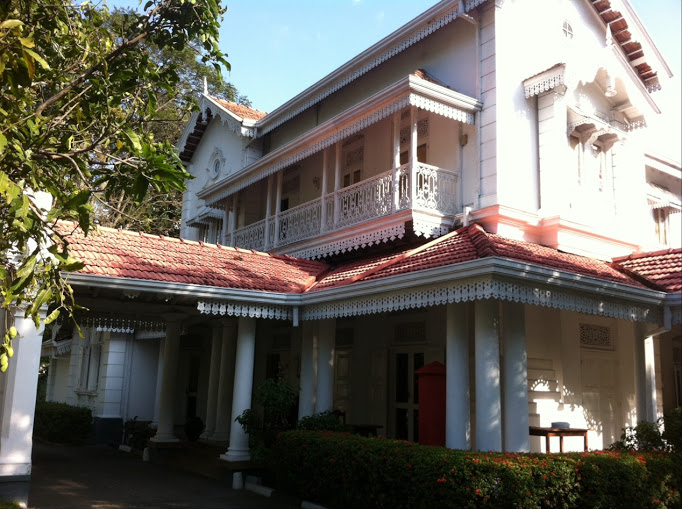 Lakshman Kadirgamar Institute is a think tank established by Sri Lankan government dedicating to analyzing Sri Lanka’s strategic interests in the realm of international relations with the mission of “generating broad policy indicators for the guidance of the Government of Sri Lanka, based on research, monitoring and analysis of domestic development as well as Sri Lanka’s interface with the external world”. The Institute was officially inaugurated on August 2006. At first it was called Sri Lanka Institute of Strategic Studies (SLISS), and changed into current name later. It dedicates to the study of the strategic interests of Sri Lanka, including in particular, defence, national security, law, economics, cultural relations, agriculture and environment and the study of Sri Lanka’s international relations; and engages in promoting peace and addressing post conflict issues. Furthermore it provides information and data to the government in relation to issues which may be required as a basis for the formulation and structuring of national policies relating to international relations and strategic studies, including information relating to defence, national security, law, economics,cultural relations, agriculture and environment. Apart from that, Lakshman Kadirgamar Institute also provide a forum for discussions, analyses and evaluations of research in strategic studies and international relations in so far as the same are connected to Sri Lanka, and conduct joint studies, seminars and workshops on such subjects both within the region and internationally. Foreign minister of Sri Lanka acts as chair of the institute, while an 8-member board of management makes major decisions.
Lakshman Kadirgamar Institute is a think tank established by Sri Lankan government dedicating to analyzing Sri Lanka’s strategic interests in the realm of international relations with the mission of “generating broad policy indicators for the guidance of the Government of Sri Lanka, based on research, monitoring and analysis of domestic development as well as Sri Lanka’s interface with the external world”. The Institute was officially inaugurated on August 2006. At first it was called Sri Lanka Institute of Strategic Studies (SLISS), and changed into current name later. It dedicates to the study of the strategic interests of Sri Lanka, including in particular, defence, national security, law, economics, cultural relations, agriculture and environment and the study of Sri Lanka’s international relations; and engages in promoting peace and addressing post conflict issues. Furthermore it provides information and data to the government in relation to issues which may be required as a basis for the formulation and structuring of national policies relating to international relations and strategic studies, including information relating to defence, national security, law, economics,cultural relations, agriculture and environment. Apart from that, Lakshman Kadirgamar Institute also provide a forum for discussions, analyses and evaluations of research in strategic studies and international relations in so far as the same are connected to Sri Lanka, and conduct joint studies, seminars and workshops on such subjects both within the region and internationally. Foreign minister of Sri Lanka acts as chair of the institute, while an 8-member board of management makes major decisions.
Lakshman Kadirgamar Institute official website: http://www.kadirgamarinstitute.lk
International Centre for Ethnic Studies (ICES) 國際族群問題研究中心
ICES is established in 1982 with focus on areas of ethnicity, identity politics, conflict and conflict resolution, post-war reconstruction, democracy and governance, human rights, development and gender in its researches. The mission of ICES is to deepen understanding of ethnicity, identity politics and conflict, and to foster conditions for an inclusive, just and peaceful society through researches, publications, dialogues, creative expressions and knowledge transfer. ICES is funded by a range of bilateral and multilateral donors and foundations including the Ford Foundation, CIDA, IDRC, FES, Diakonia and NORAD. ICES is in ‘special category’ consultative status with the United Nations ECOSOC and It works as a key regional research center in South Asia as well, collaborating with the United Nations at different levels on minority issues pertaining to Sri Lanka and South Asia.
ICES official website: http://www.ices.lk
Centre for Policy Alternatives 另類政策方案中心
CAP is a think tank formed in 1996 with the mission of “strengthening the civil society’s contributions to public policies in the areas of democratic governance and peace with human rights as an overarching priority.” It claims to play a role of identifying and developing policy alternatives having the belief that there is an urgent need to strengthen institution and capacity building for good governance and conflict transformation in Sri Lanka. In 1997 CPA cooperation with the Free Media Movement (FMM) and the Coalition Against Political Violence to establish the Centre for Monitoring Election Violence (CMEV) to conduct monitoring missions on violence during elections. CMEV today is one of the major election-monitoring NGOs during national and local elections in Sri Lanka.
CPA website: http://www.cpalanka.org
Social Scientists Association社會科學家協會
SSA was formed by a group of academics in 1977 with the objective to “creating a forum for facilitating critical understanding of political and social changes of Sri Lanka.” In terms of publication, SSA is quite productive: it has published hundreds of research books and policy reports since its inception, including almost one hundred books and three periodicals: Polity, Pravada, and Piravatham, the first one is in English academic journal and the rest two are printed in Sinhala and Tamil respectively. SSA has 6 research staffs and 5 administrative staffs.
SSA official website: http://ssalanka.org
Verité Research維泰研究所
Established in 2010, Verité Research is a relatively new think tank in Sri Lanka. It commits to researches to three areas: politics, economics, and Law. Its staff consists of fifteen researchers from three respective areas, and three advisors. According to its website, Verité Research claims to provide “strategic analysis and advice to decision-makers and opinion-formers in Asia,” but there is information on research project or upcoming event available on the Internet.
Verité Research official website: http://www.veriteresearch.org
Marga Institute-Centre for Development Studies馬爾加研究所
Formed in 1972, Marga Institute is probably the oldest non-governmental think tank introduced in this article. Its main focus is development studies and has organized a number of seminars on public issues. The institute has also sponsored institutions and come up with initiatives to involve civil society in the resolution of ethnic conflict. Several of its projects cooperate with United Nations agencies such as UNHCR and WHO.
Marga Institute website: http://www.margasrilanka.org
Although there are a number of think tanks dedicating to researches and policy assessments in Sri Lanka today, a truly think-tank culture still remains at its developmental stage. Certain non-governmental think tanks are not active in recent years due to financial difficulties. Some other institutes have limited their role merely for research, but did not transmit their findings and innovative ideas to the policy options. Problems such as lack of independence, conservative tendencies, and limited influence over policies also exist among some of above-mentioned institutes. Think tanks would be efficient and more useful for a country if only they can play the significant roles in contributing to public policies and generating high-quality scholarly researches. From this perspective, it will be a long way to go if Sri Lanka wants to become a knowledge hub in South Asia.
[1] “A Bright Future – Presidential Election 2010, Mahinda Chinthana Vision for the Future”, 2010, Page 75,
http://www.srilankanelections.com/userfiles/file/mahinda_chintana_vision_for_the_future_eng.pdf
[2] “Sri Lanka’s Top Three Think Tanks,” The Kandy News, http://www.kandynews.net/index.php/march-2013-editorial/265-sri-lanka-s-top-three-think-tanks
